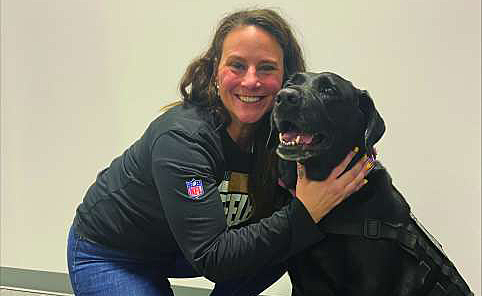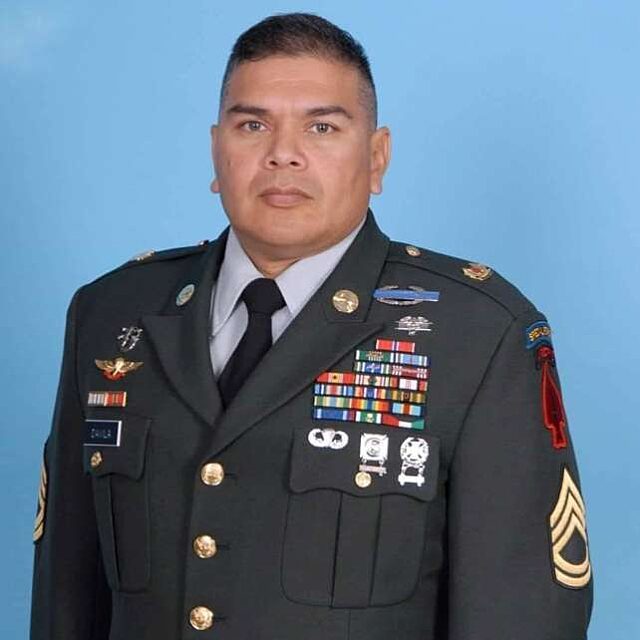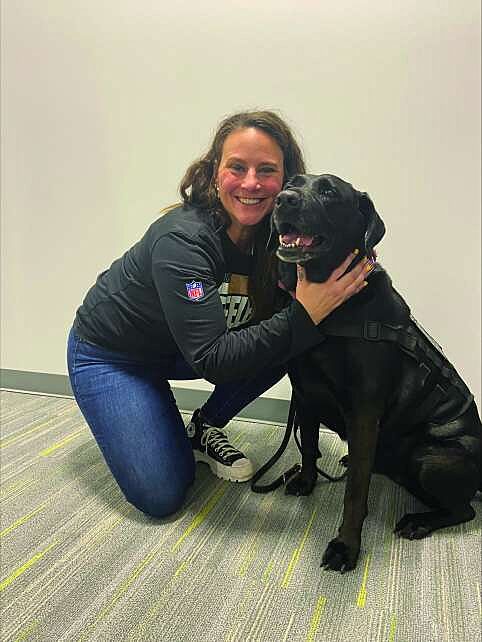Helping Our Military Veterans Find Healing

The UF Health Jacksonville Leon L. Haley Jr., MD, Brain Wellness Program is an interdisciplinary treatment program for military veterans experiencing persistent health issues associated with mild to moderate traumatic brain injuries, along with associated behavioral health issues such as post-traumatic stress, anxiety, depression and substance use disorder.
The program launched in October 2021 and has since treated dozens of veterans who need support. Here are the stories of just two patients whose lives were forever changed after receiving treatment through the Haley Brain Wellness Program.
Learning the skills to overcome
Mike Davila served 25 years of active duty as a U.S. Army Special Forces medical sergeant, or Green Beret. Since 2006, he has suffered from the effects of post-traumatic stress disorder, or PTSD, and traumatic brain injury, or TBI.
Throughout the years, Davila’s symptoms have continually gotten worse, and none of the doctors he saw could provide a sound answer as to what he was experiencing. No matter how much they helped him manage his physical pain, Davila would still find himself in constant pain.
“I struggled daily, feeling unmotivated and dealing with depression and anxiety,” Davila said.
He often had trouble remembering things and battled regular migraines. Bright lights, loud noises and crowds could trigger Davila to feel angry. All of this caused him to avoid certain activities. He even struggled being around his family.
It wasn’t until one of his brothers introduced him to the Haley Brain Wellness Program that he finally began to get answers. The program helped Davila understand his depression cycle, which was causing him to go from agitation to exhaustion.
As he progressed in the program, Davila learned to better regulate his emotions. With the aid of several forms of therapy, including speech, physical, art, acupuncture, K9 and equine, Davila relearned how to carry on conversation, tolerate crowds, improve his listening skills and better manage his emotions.
“Mindfulness and resiliency training taught me how to gauge my feelings,” Davila said. While Davila still suffers from TBI, PTSD and migraines, he has learned to regulate his emotions and navigate life while managing his symptoms. He continues to stay active by exercising and eating healthy and is reconnecting with his family in a positive way.
Overcoming the fear of trauma
After years of serving active duty in the U.S. Navy, Amanda Damasiewicz was diagnosed with PTSD and TBI. Following the diagnoses, Damasiewicz visited multiple outpatient and inpatient programs, working with numerous psychologists, but none were able to help.
In 2021, Damasiewicz connected with the Haley Brain Wellness Program and officially signed up to attend the three-week Intensive Outpatient Program in March 2022.
“I was very skeptical on the first day and scared because all of the doctors were telling me what was really going on with me, and there was no sugarcoating it,” Damasiewicz said. “I didn’t realize how bad trauma had held me down all of these years.”
Damasiewicz persevered despite her doubts and continued working with the faculty and staff of the Haley Brain Wellness Program. As she neared the completion of the program, the hard work was paying off.
“I finally understood the connection with my trauma and how I was dealing with death,” Damasiewicz said. “I understood why I was reacting the way I had been — I had abandonment and trust issues and wanted to change the past. I’ve felt that every day since 2014, and that wasn’t the way I wanted to live my life.”
Damasiewicz never had the opportunity to meet the late Dr. Leon Haley Jr., for whom the program is named, but wanted to express her appreciation for his vision.
“I am a living example of his legacy. He wanted to help veterans and first responders in the Jacksonville area with TBI and PTSD, and, ladies and gentlemen, he did it. This program turned my whole life around. After 22 years in the Navy, this program and staff gave me hope again, and they gave me a positive outlook on life,” Damasiewicz said.

